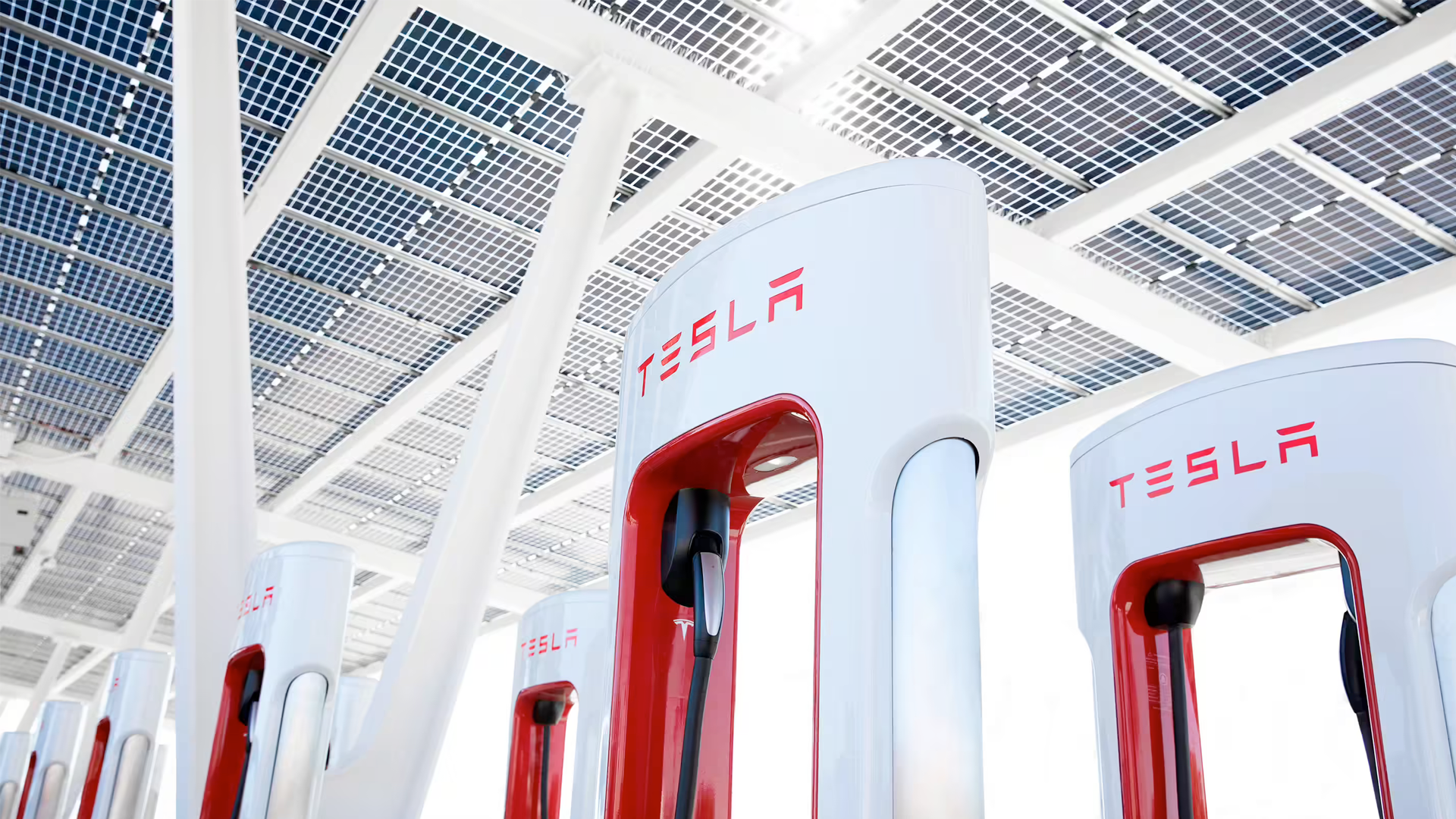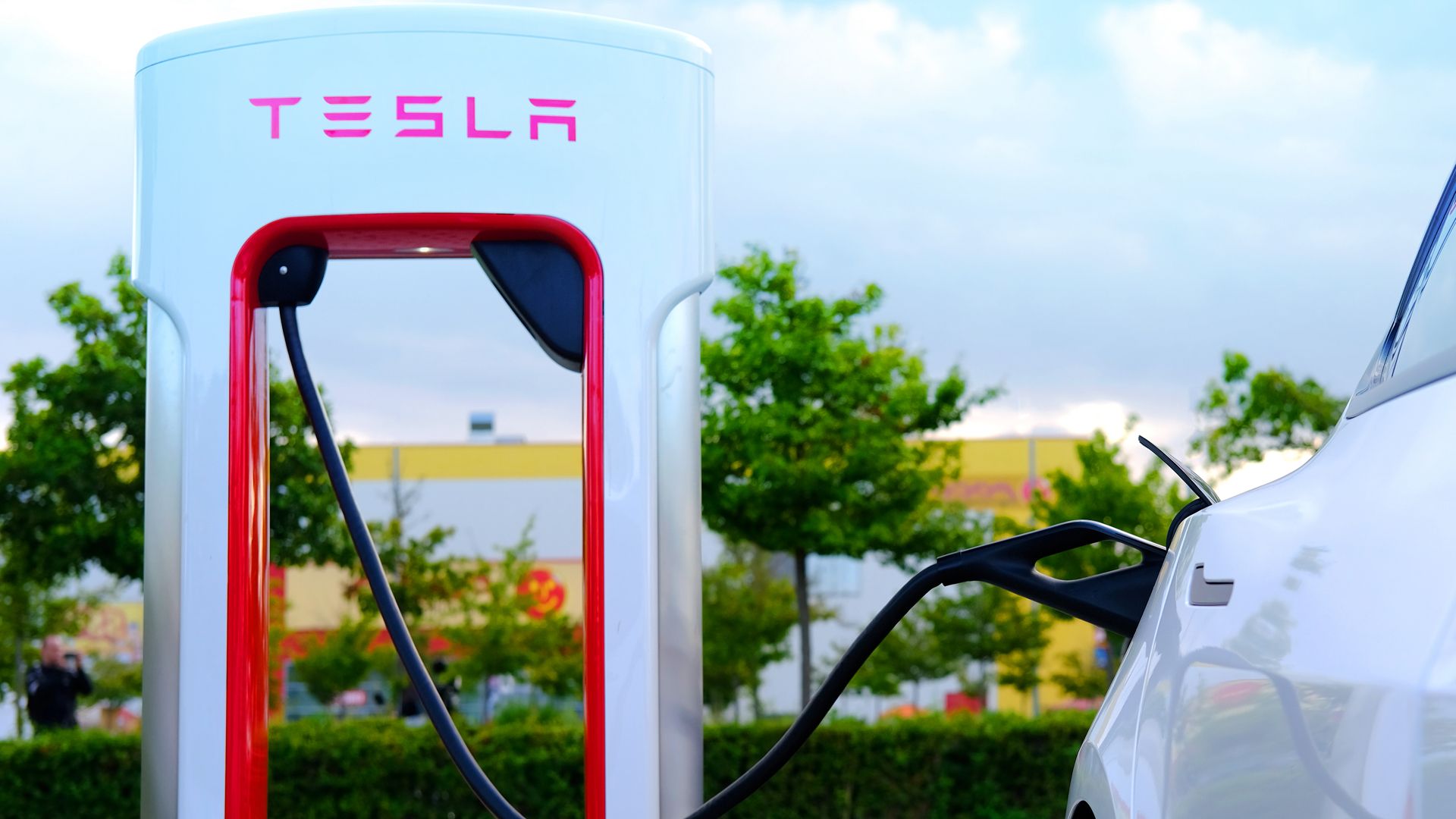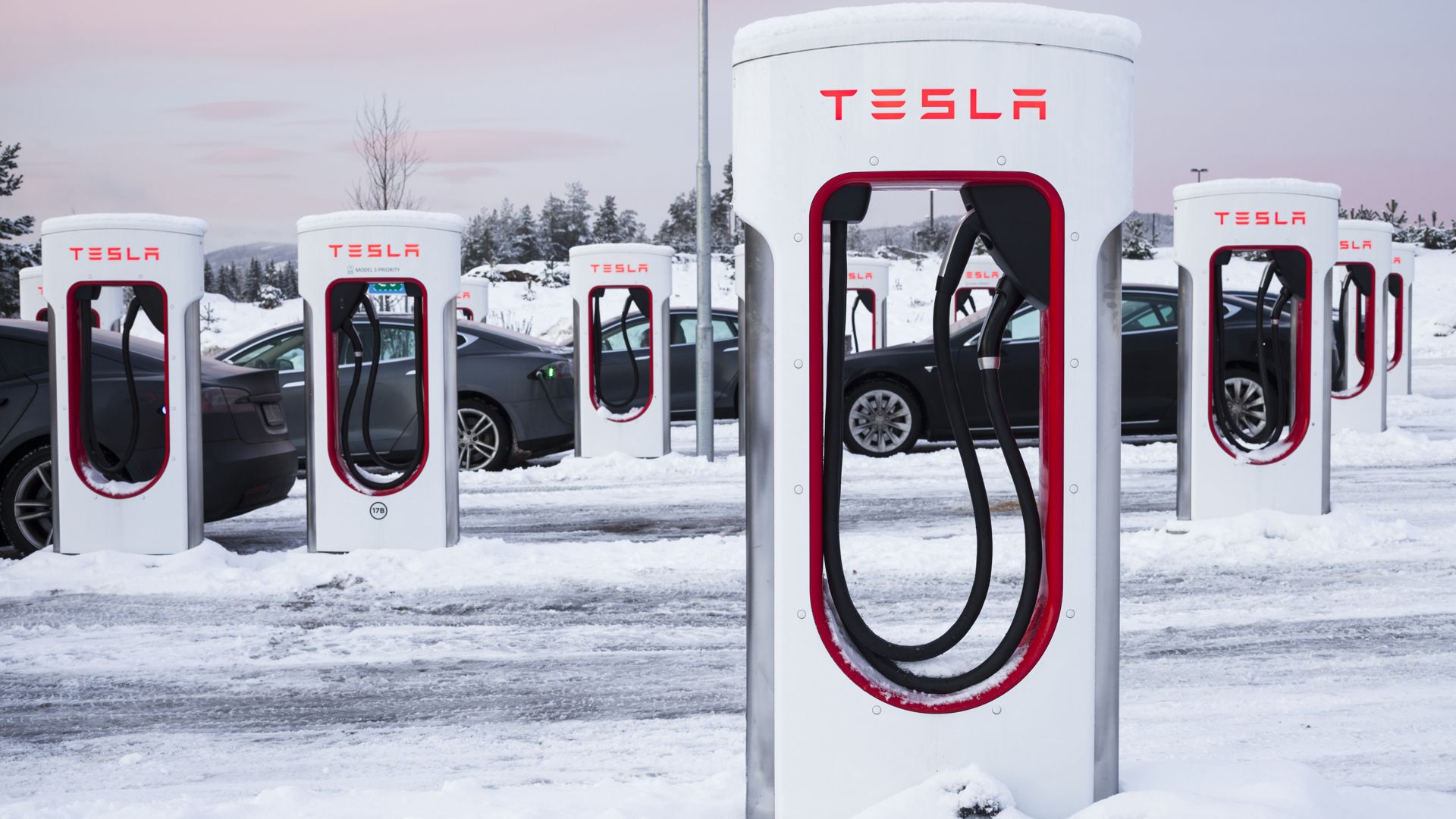
Compatibility of Vehicles with Tesla's Electric Charging Network

Compatibility of Vehicles with Tesla’s Electric Charging Network
Key Takeaways
- Tesla’s Supercharger network is now open to non-Tesla EV drivers, but compatibility varies depending on the charging cables used.
- Tesla has made a deal with the US government to have 10% of national Tesla Superchargers support non-Tesla EVs by the end of 2024.
- Non-Tesla EV drivers can reduce charging costs at Tesla stations by getting a monthly subscription, but it’s important to calculate if the savings outweigh the membership fee.
Teslas are the most well-known kind of EV on the road today, so it’s no surprise that Tesla itself has constructed a worldwide public charging network for drivers. However, if you’re driving a non-Tesla EV, is this vast charging network still accessible to you, or do you need to opt for an alternative?
Can You Use Tesla’s Charging Network With a Non-Tesla EV?
Charging your EV at home is always a solid option, but sometimes you need to top up your battery on the go. That said, as a non-Tesla EV driver, are public Tesla stations an option for you?
When Tesla’s Supercharger network was in its early days, only Tesla EVs could use it. But as other brands of EV became increasingly common, things began to change. In 2021, Tesla opened its Supercharger network to non-EV drivers, though this was on a limited basis. Since then, non-Tesla Supercharger stations have been popping up in a myriad of countries, which you can see in the table below.
| Region | Country |
|---|---|
| North America | Canada, US. |
| Asia Pacific | Australia, New Zealand, South Korea, China (mainland). |
| Europe | UK, Ireland, France, Germany, Hungary, Spain, Italy, Denmark, Belgium, Luxembourg, Austria, Iceland, Norway, Sweden, Switzerland, Finland, The Netherlands, Turkey, Romania. |
Tesla has also made a deal with the US government to ensure that 10 percent (or 3,500) of all national public Tesla Superchargers offer non-Tesla EV support by the end of 2024. This deal has fueled the company’s goal to boost non-Tesla EV charging in the US.
However, it’s important to note that Tesla Supercharger stations don’t support all types of non-Tesla EVs, and this varying compatibility comes down to the charging cables being used.
While most non-Tesla EV models in the US use Combined Charging System (CCS) Type 1 chargers for public fast charging, Tesla’s Supercharger network uses North American Charging Standard (NACS) chargers. Tesla’s charging stations in Europe support (Type 2) CCS without adapters thanks to regulation, but no such regulation exists in the US.
Some (but not all) of Tesla’s V3 Superchargers come with CCS adapters, making them accessible to anyone driving an EV with a CCS port. Superchargers that can accomodate CCS charging are also known as “Magic Docks .” At the time of writing, there are less than 100 CCS-compatible Tesla charging stations across the US. More Magic Docks are being rolled out over time, but it’ll be a while before they’re commonplace. However, several competing brands like Honda and BMW have announced plans to adopt the NACS standard in place of CCS, so Magic Docks won’t be necessary for future non-Tesla EVs.
How Much Does It Cost to Charge a Non-Tesla With a Tesla Charger?

Naturally, Tesla favors its own vehicles over other EV brands, so the cost of charging is a little higher at its Supercharger stations if you’re driving a non-Tesla EV. According to Consumer Reports , charging a non-Tesla at a Tesla station costs between $0.48 to $0.55 per kWh. It costs $0.24 to $0.36 for Tesla drivers to charge (as reported by Energy5 ), so the difference is pretty substantial.
However, there is a way to get around this high fee if you’re a non-Tesla driver who frequently uses Tesla’s charging network. Tesla offers non-native EV drivers a monthly subscription which lowers the price per kWh of each charging session. This membership costs $12.99 per month.
Inside EVs reported that having a Tesla membership as a non-Tesla driver can reduce your charging costs by about 25 percent. On the other hand, it was reported by Electrifying.com that the UK-based Tesla membership can reduce charging costs to about 60p (about 0.76 USD) per kWh for non-Tesla drivers, compared to the average of 50p (about 0.64 USD) per kWh for Tesla drivers. This means that UK non-Tesla drivers with a membership can enjoy a reduced rate of around 16-17 percent.
How often you use a public Tesla charger as a non-Tesla driver will determine whether it’s worth paying the $12.99 monthly membership fee. It’s wise to calculate your monthly Tesla station charging costs and compare that to the membership fee to see if you’re really saving money.
How to Charge Your Non-Tesla EV at a Tesla Charger

Ingrid Maasik/Shutterstock.com
If you’re looking to charge your non-Tesla EV at a Supercharger, the process itself is quite simple, so long as there is a compatible Magic Dock connector present.
First, plug in the Magic Dock connector to your car’s charging port, ensuring that the car is in a suitable position for the port to be accessible to the cable.
Next, you’ll need to head into the Tesla smartphone app and enter which Tesla charger you’re using by providing the charger number (which can be seen at the lower end of the charging dock). You’ll then need to provide payment details, and, once these details are accepted, you confirm that you want to start charging, and the process begins.
If your Tesla charging account has the membership active, you’ll be able to enjoy the reduced rate. If not, then expect a higher price.
You can view Magic Dock Tesla chargers near you in the Tesla app. You’ll also be able to track the progress of your car’s charging period through the app.
Download: Tesla for Android | iOS (Free, in-app purchases available)
Tesla’s Non-Native Support Is Spreading
While support for non-Tesla EVs at Tesla charging stations is currently quite limited in the US, things are slowly progressing. In the near future, non-Tesla support may be commonplace at Tesla charging stations, giving you the option to charge up whenever you desire. Just remember, without a membership, you will be paying a steeper price per kWh, which can cost you a lot over time.
Also read:
- [New] Instant Income Analysis for Creators
- [New] Unraveling Success's Secrets How to Amass More Subscribers on YouTube
- [Updated] Buzzing Tracks Ultimate Backdrops for YouTube Shorts for 2024
- [Updated] Expert Tips for Enhancing PPTs with Auditory Content
- [Updated] Exploring Income Derived From Each Watch on Video Platforms
- [Updated] No-Rush Realms Top 12 Serene Titles
- 2024 Approved Exemplars Crafting Multimedia Narratives with Images & Melody
- Fix Honor X50 Android System Webview Crash 2024 Issue | Dr.fone
- In 2024, How to Change Location On Facebook Dating for your Tecno Pova 5 Pro | Dr.fone
- Resolve Irritating Speaker Noise on Windows 10/7 Computers - A Step-by-Step Guide
- Title: Compatibility of Vehicles with Tesla's Electric Charging Network
- Author: Jeffrey
- Created at : 2024-11-26 16:47:29
- Updated at : 2024-11-28 16:08:11
- Link: https://eaxpv-info.techidaily.com/compatibility-of-vehicles-with-teslas-electric-charging-network/
- License: This work is licensed under CC BY-NC-SA 4.0.